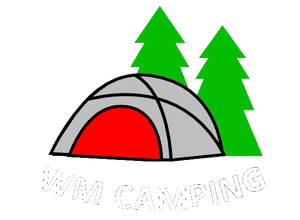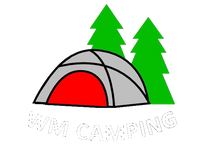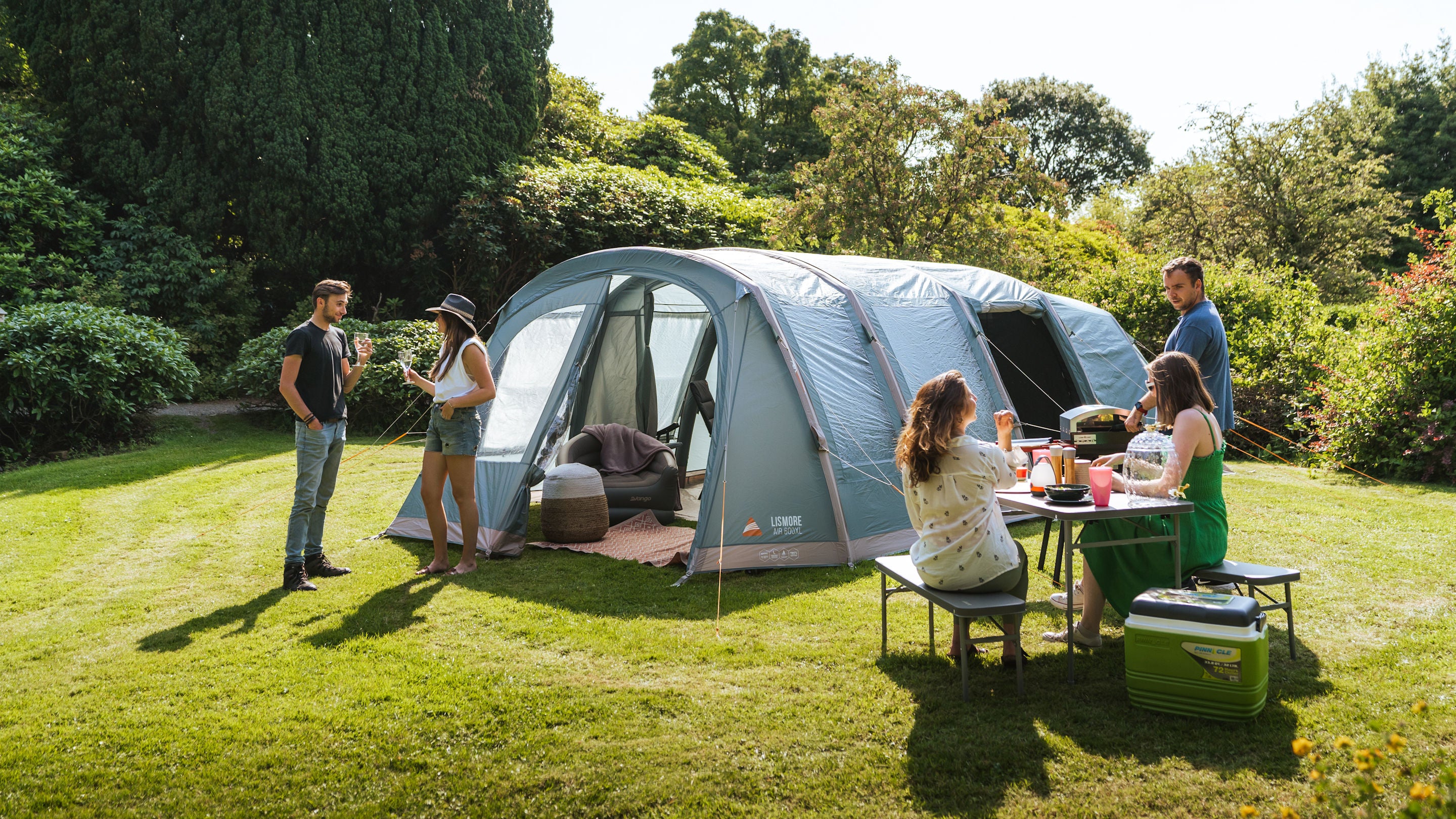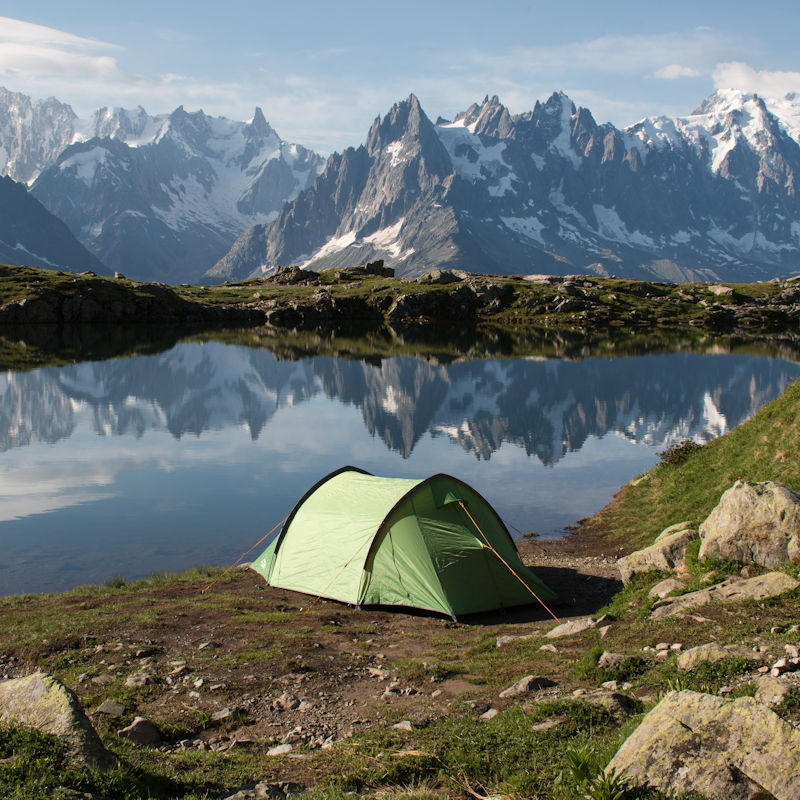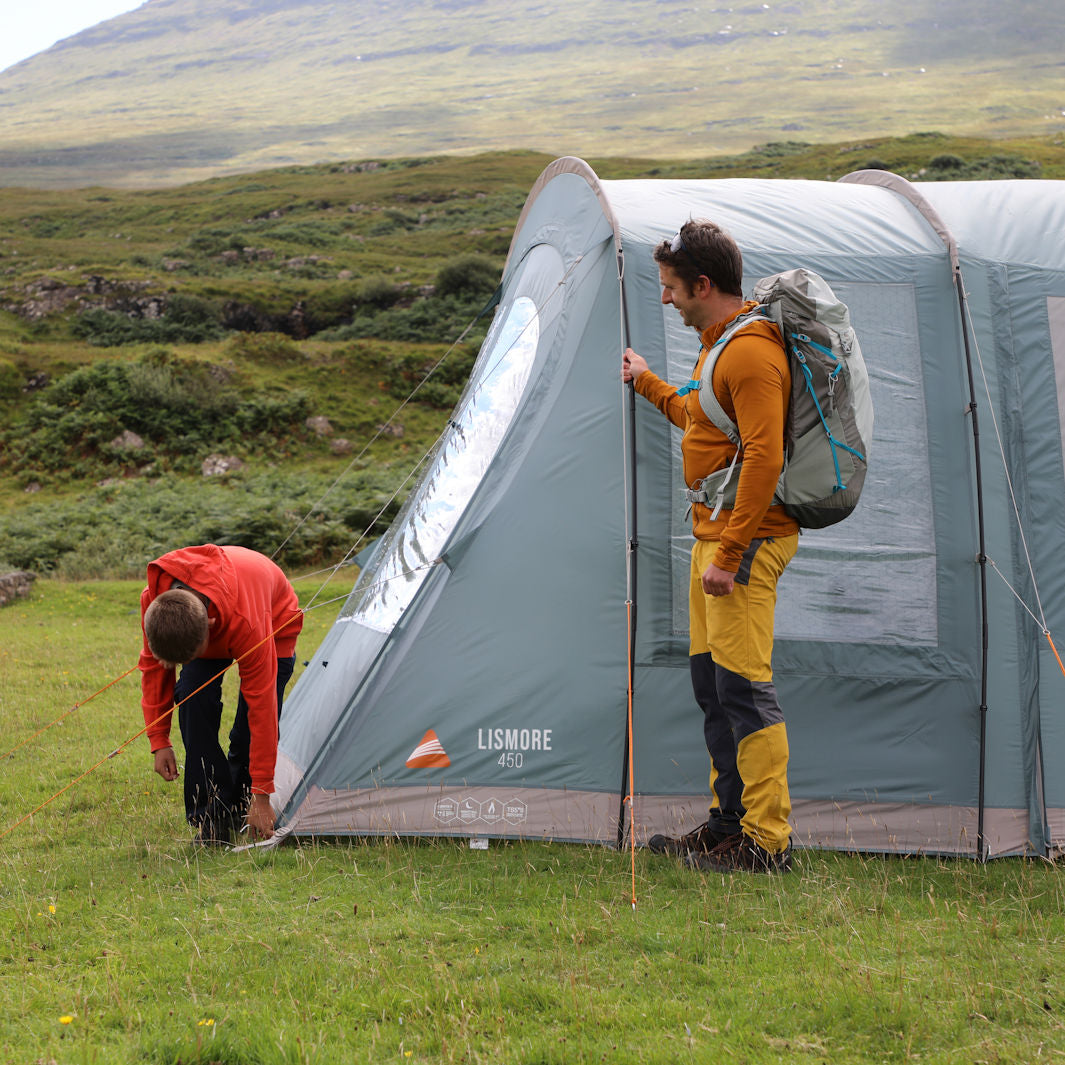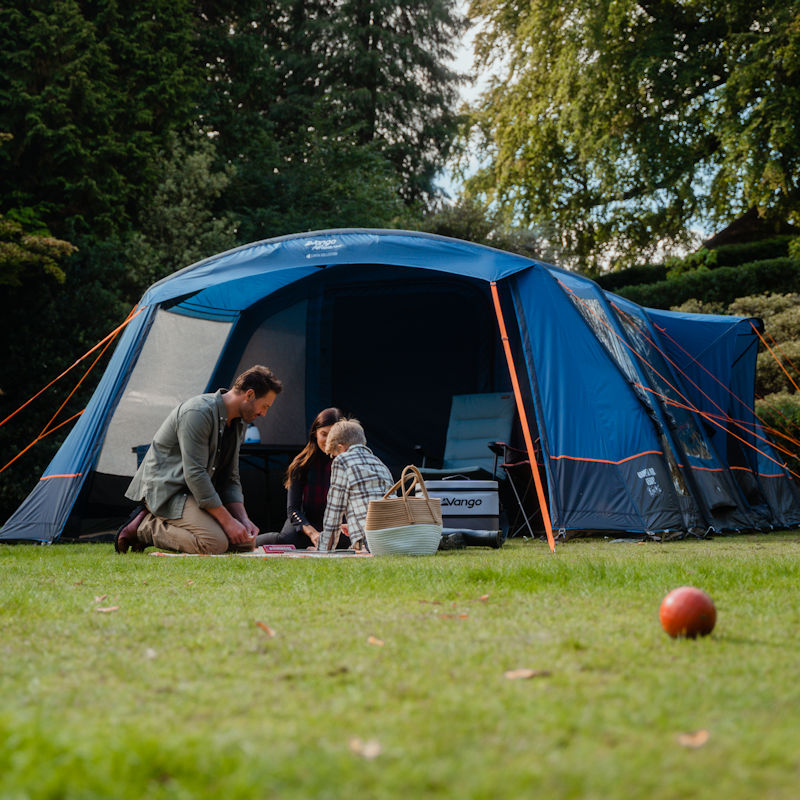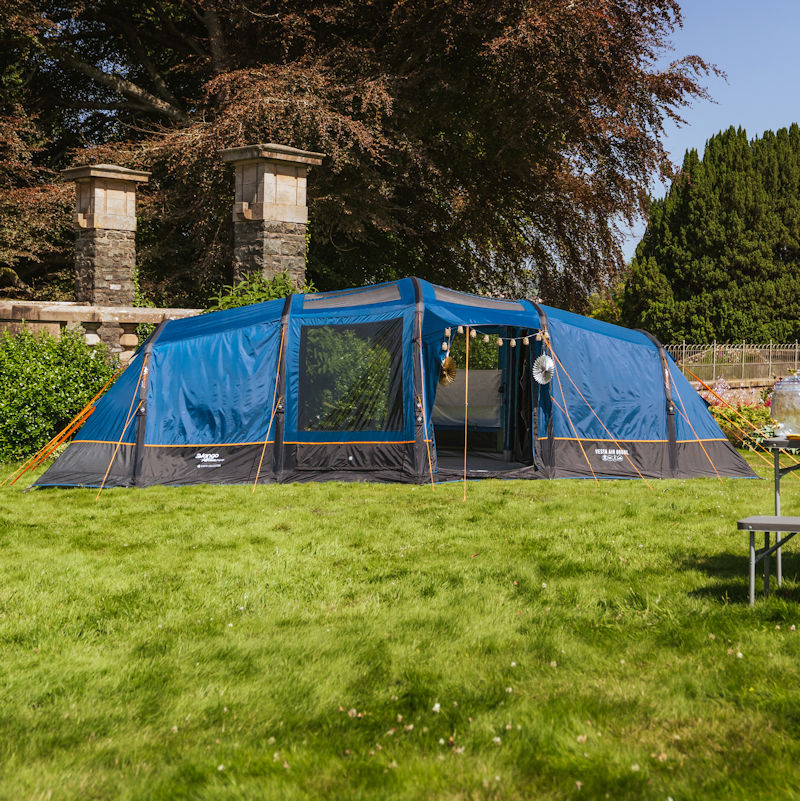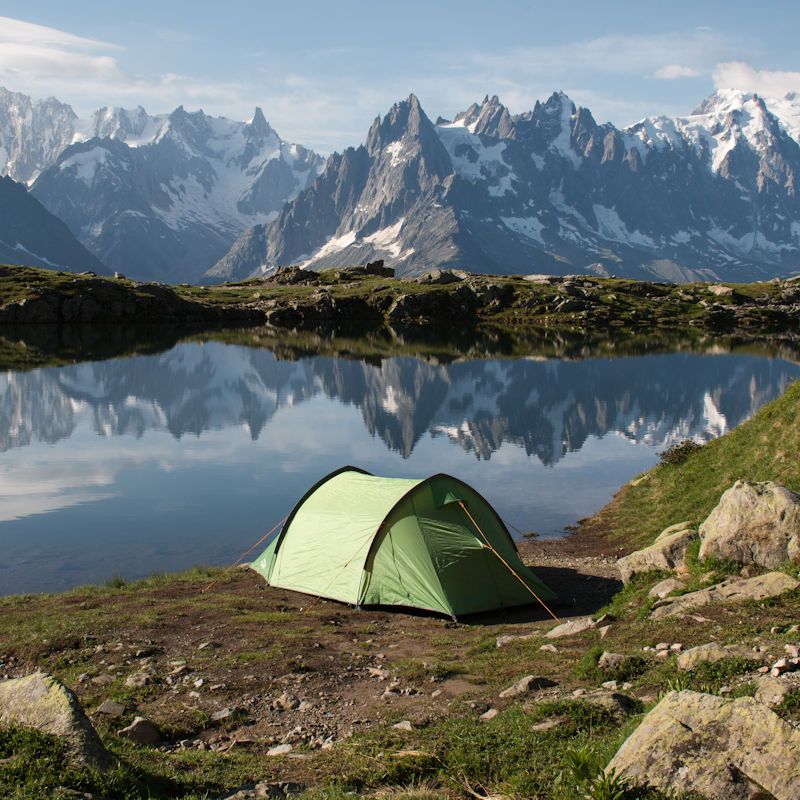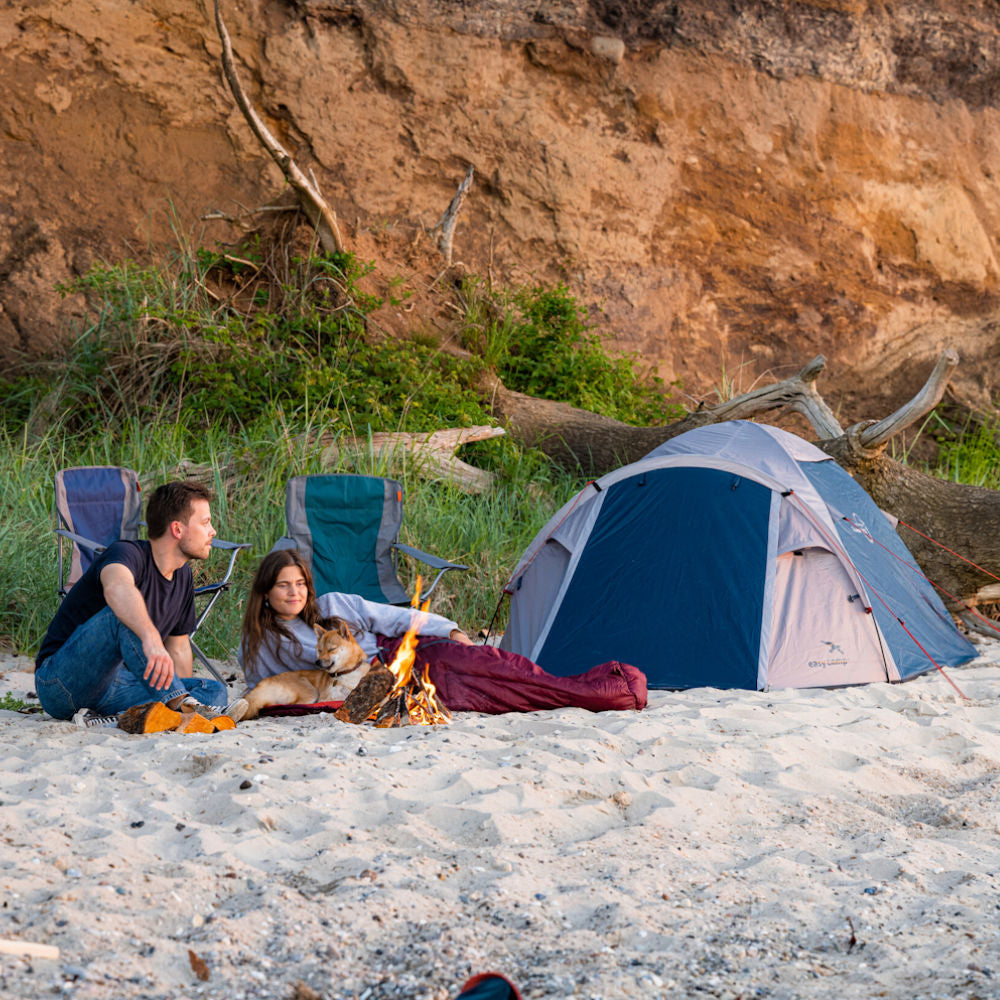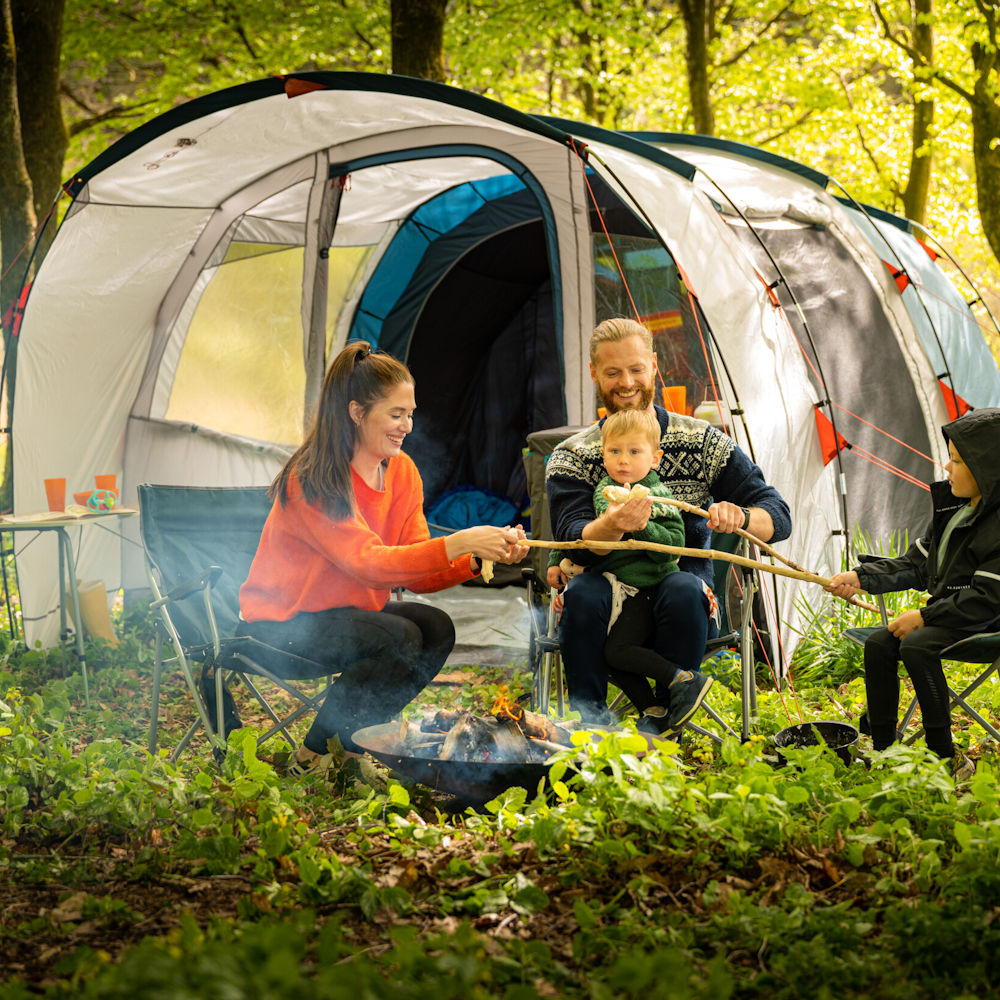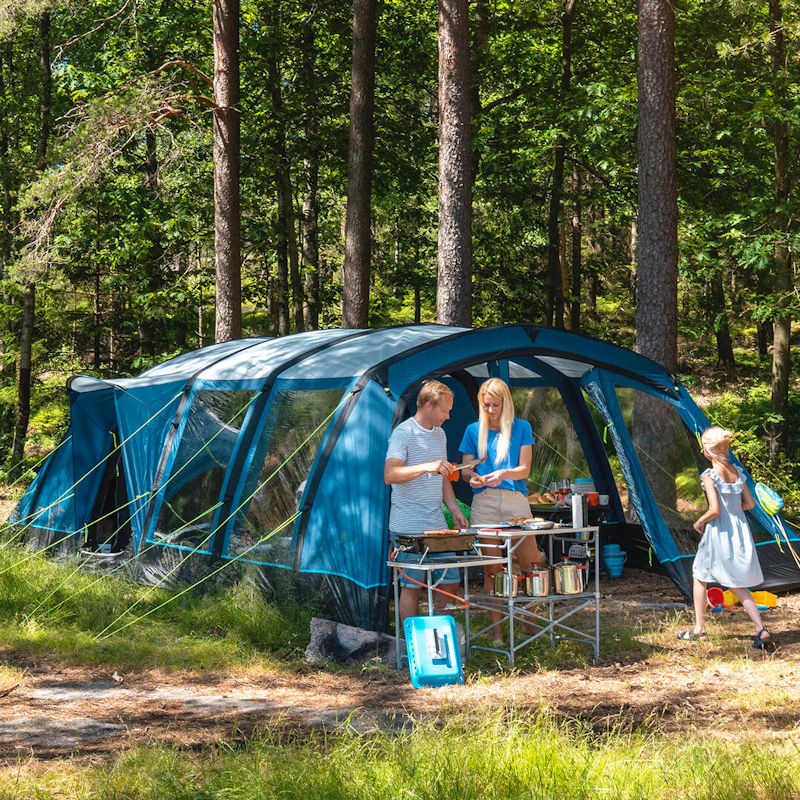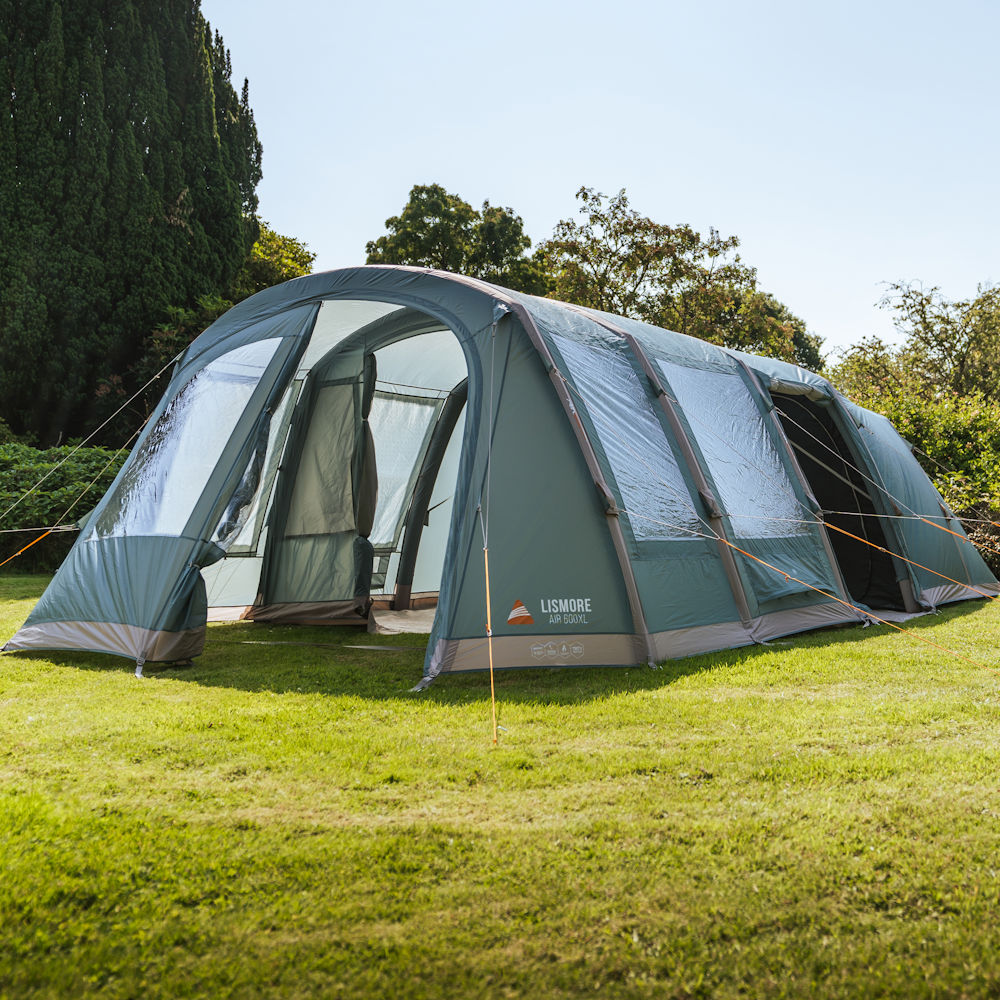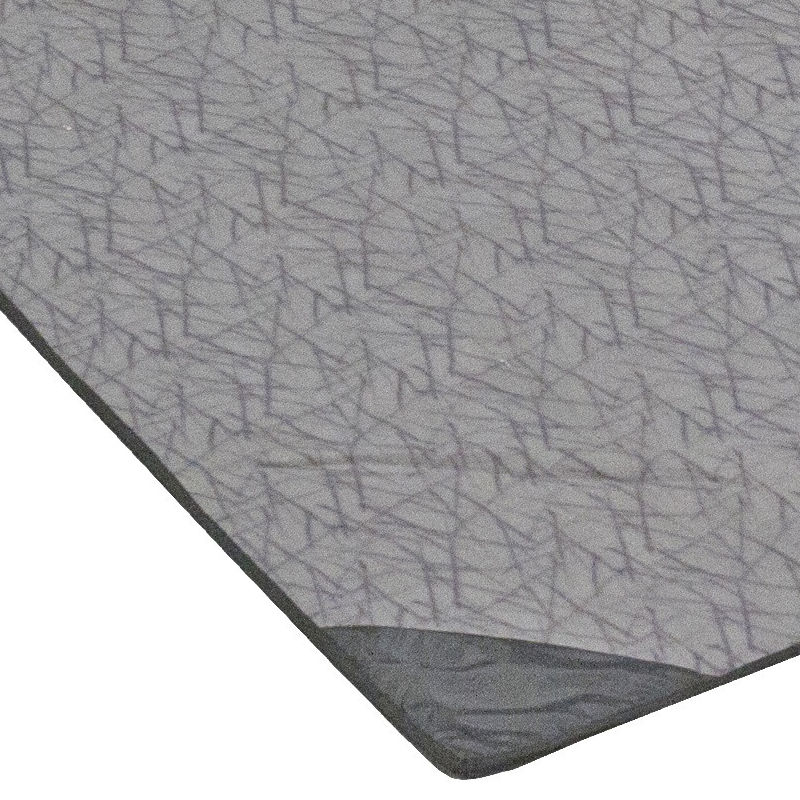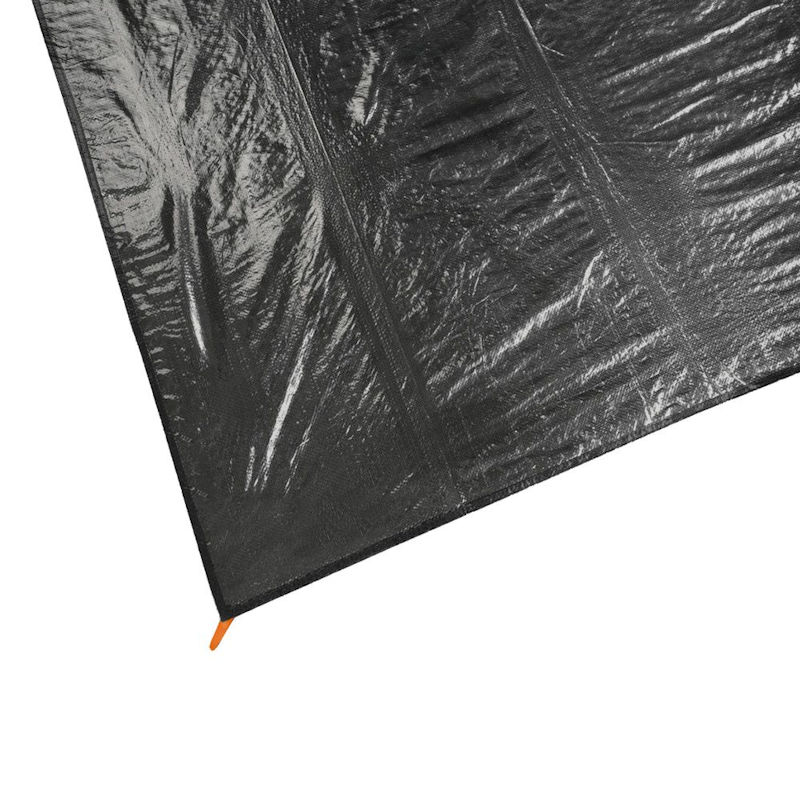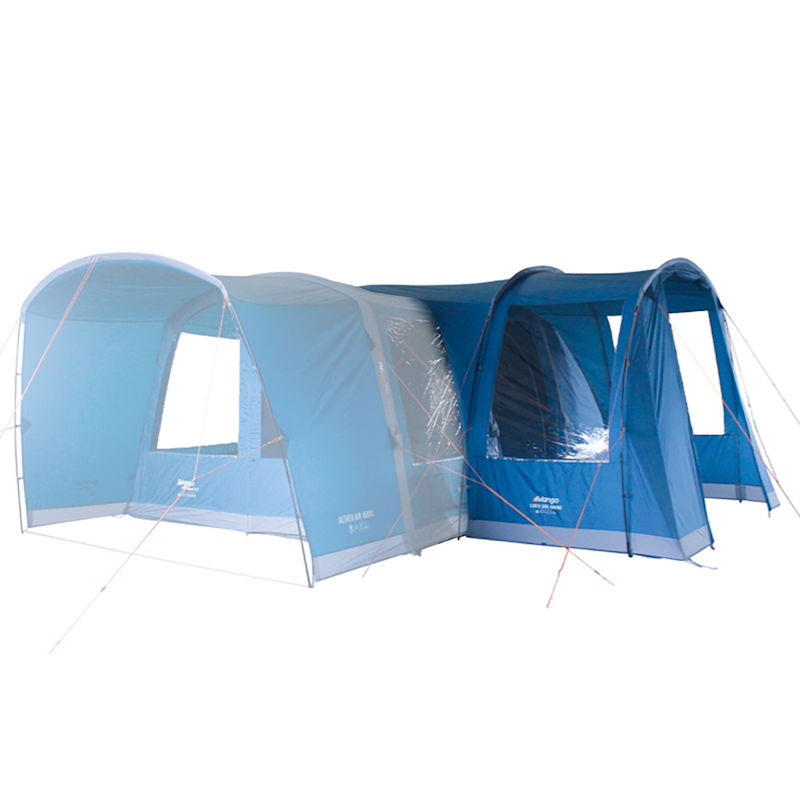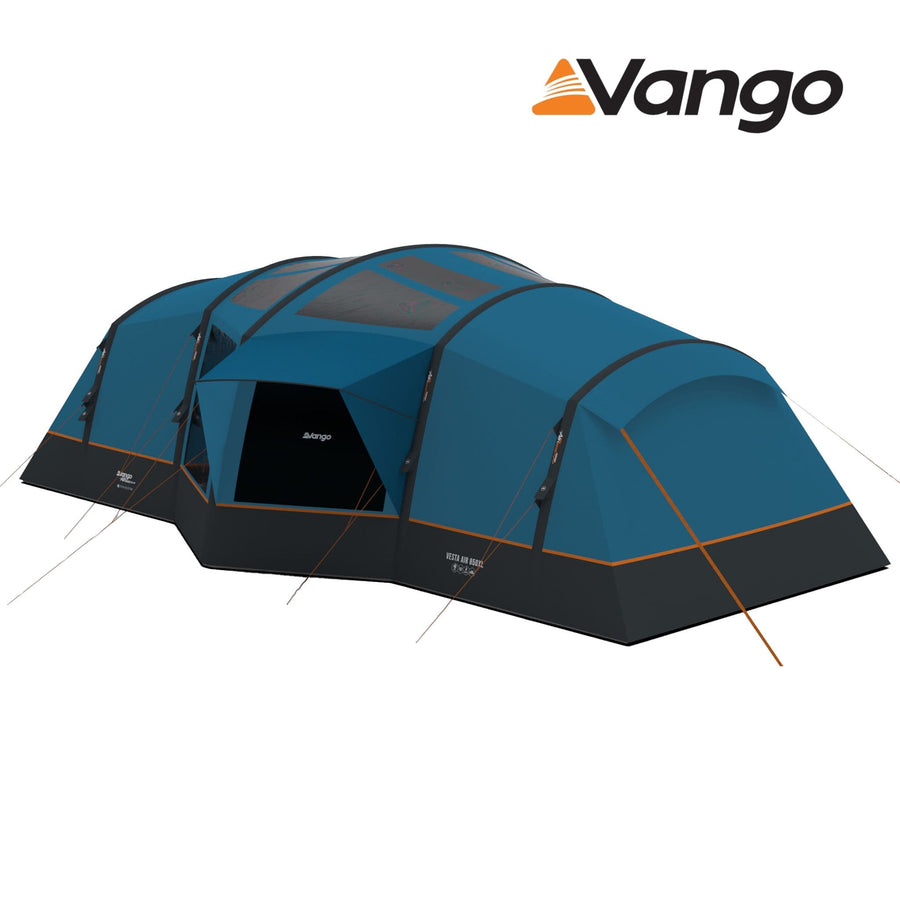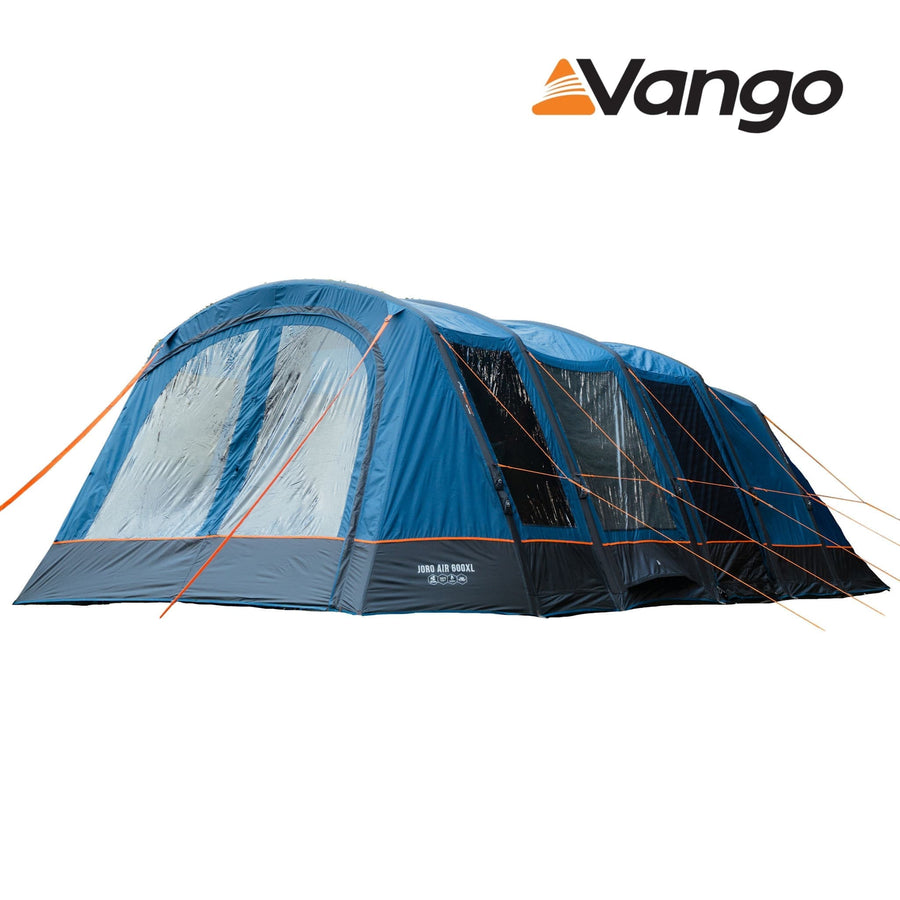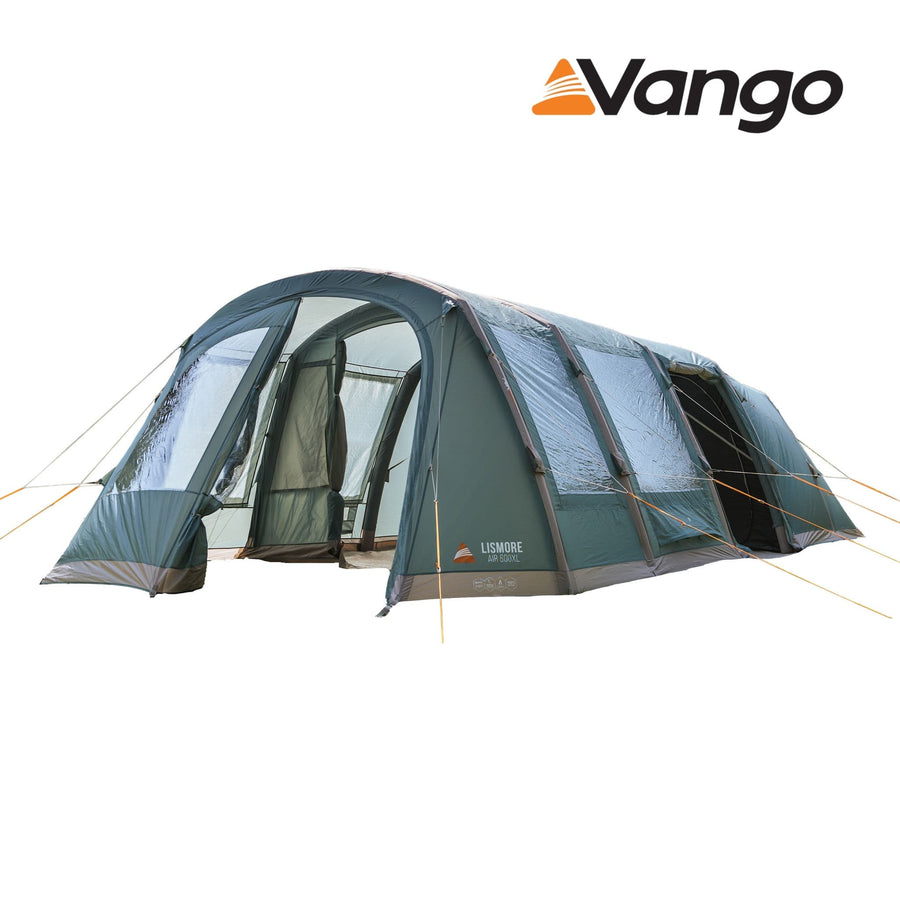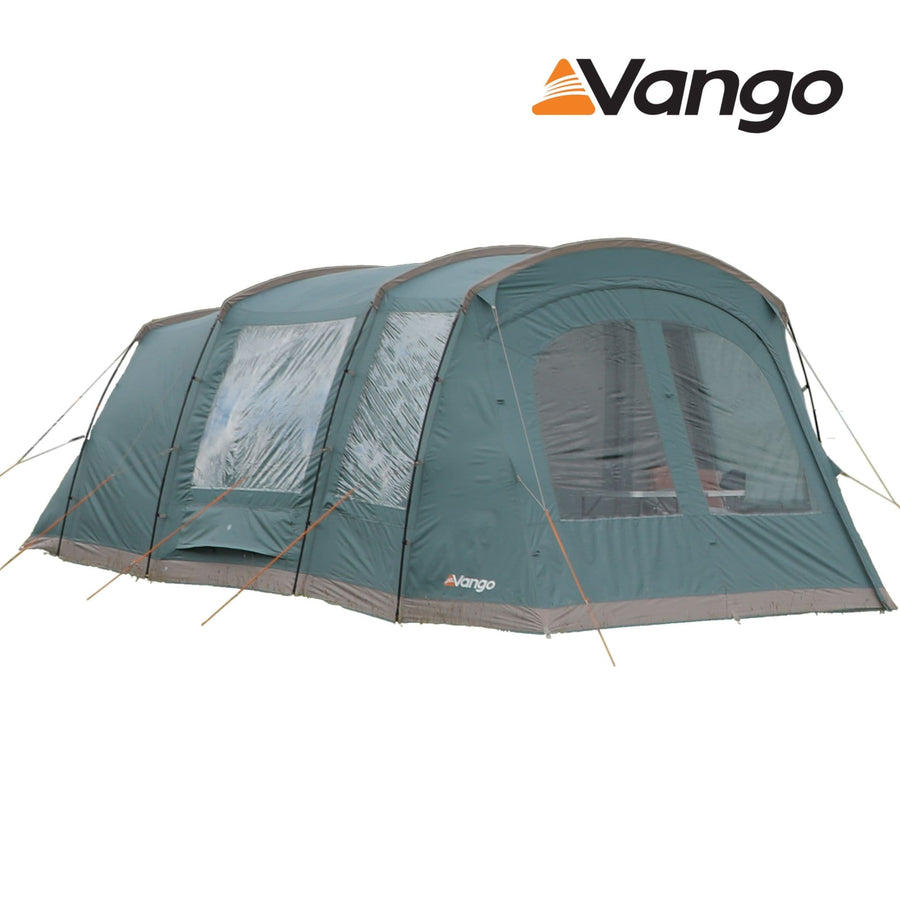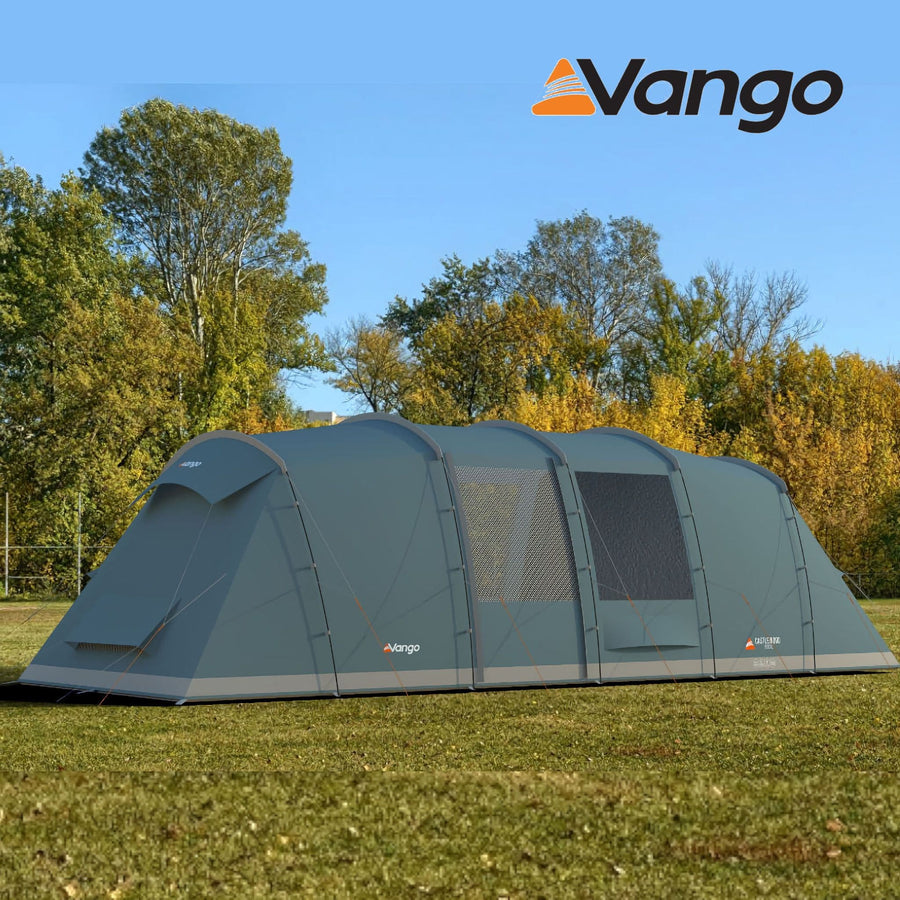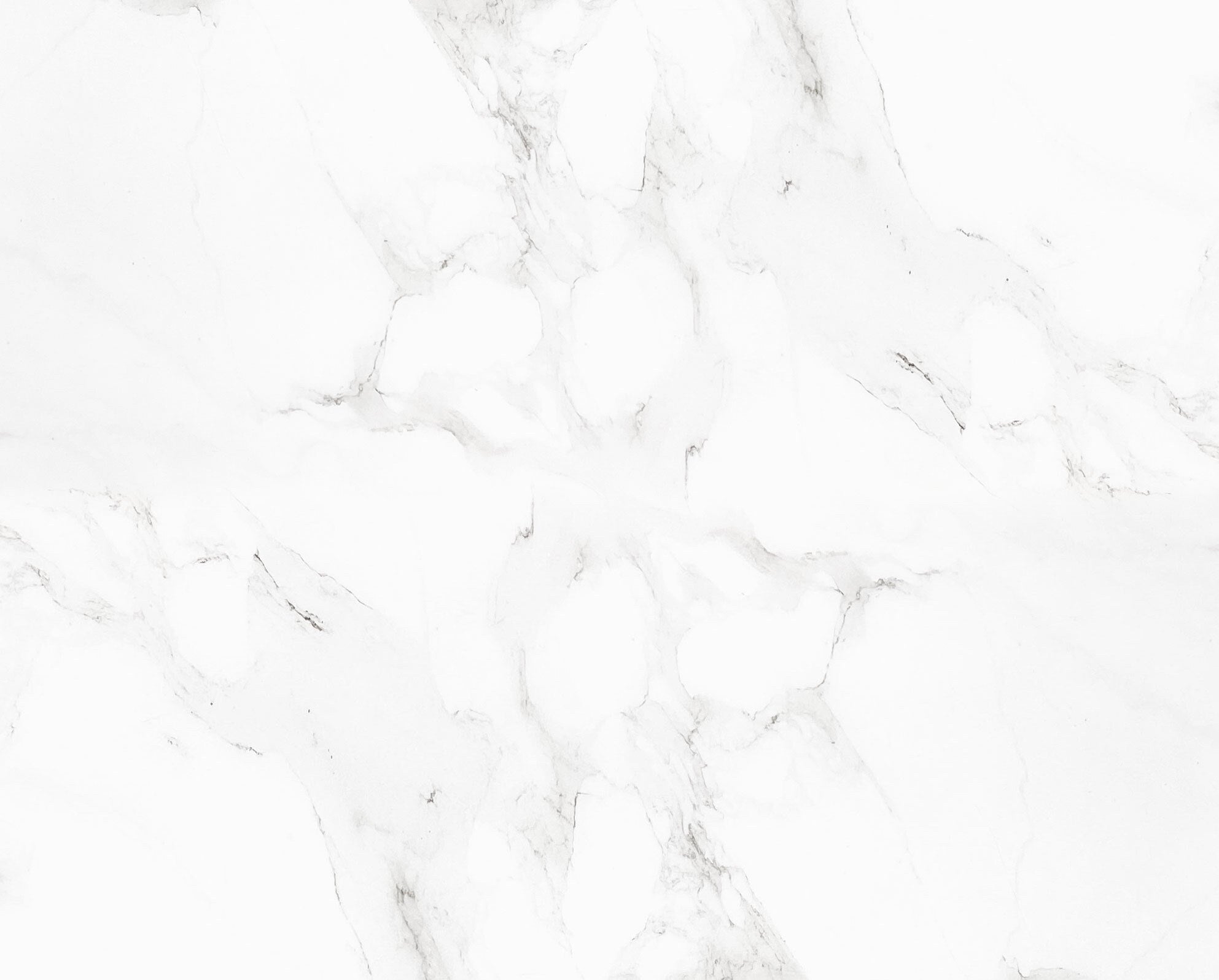
At WM Camping we understand that a tent is more than just fabric and poles; it’s your home away from home. We also understand that choosing a tent can be a big investment and with so many different types, shapes, styles, sizes and features on offer the task to find just the right one can be quite daunting.
We love camping and have been selling camping equipment from our shop and showground in Kent for over 40 years. Here is our expert guide to buying the right tent, whether you’re a first-time family camper, weekend away enthusiast or an experienced camper.
In this guide, we will provide insights into various tent options, explain key features, and offer recommendations to match your camping style.
Budget
Let's start by considering your budget. How much money you're willing to pay plays a crucial role in this process. Tents come in a wide price range, and it's important to remember the adage "you get what you pay for." Avoid going for the cheapest option, as quality tends to suffer in such cases. Take some time to read reviews from other users before making a decision. Be very cautious when dealing with second-hand tent sales; it's advisable to inspect the tent set up before finalising a purchase. Keep in mind that used/second hand tents might have issues like mould, mildew, or wear from exposure to sunlight.
If you're new to camping, we recommend starting with a simpler, more affordable tent. This allows you to test the waters without committing a significant amount of money.
Once you're certain that camping is something you enjoy, you can then think about investing in a higher-quality tent that will last longer.

Key things to consider
Several factors should influence your tent choice, including:
- Weight and pack size.
- Ability to stand inside the tent.
- Preference for Poled Tents or Air Tents.
- Number of people going with you.
- Climate at your destination.
Additional features to contemplate include maximum height for standing, ventilation and living area size for cooking and relaxation, space for beds, and suitability for various weather conditions.
If you'd like to have a view of the outdoors while inside, choose a tent with windows and privacy curtains. For areas with mosquitoes or midges, ensure the tent has built-in anti-bug mesh nets and a sewn-in groundsheet. A built-in groundsheet is beneficial to keep stop water getting in and for warmth.
What Size Tent Should I Buy?
1-2 Person Tents
- Designed for solo adventurers or couples seeking a cozy camping experience.
- Generally lightweight and compact, making them ideal for backpacking and hiking trips.
- Offers just enough room for one or two sleeping bags and minimal gear.
- Perfect for those who prefer a minimalist camping style or plan to move frequently.
3-4 Person Tents
- Suitable for small families, groups of friends, or couples who desire extra space.
- Often have a separate sleeping area and a small living space or vestibule for gear storage.
- Provide more comfort and room to move around inside.
- Ideal for short camping trips or situations where you want to strike a balance between space and portability.
5-6 Person Tents
- Designed for larger families or groups of friends who want a comfortable camping experience.
- Typically feature multiple sleeping compartments and a central living area.
- Offer plenty of space for sleeping, gear storage, and communal activities.
- Great for extended camping trips or when you need extra room to accommodate a larger group.
7+ Person Tents
- Intended for big families or groups requiring substantial living space.
- Come with multiple sleeping areas, dividers for privacy, and a spacious central living zone.
- Often equipped with extra features like room dividers, storage pockets, and ample headroom.
- Perfect for extended vacations or gatherings where comfort and space are top priorities.
Different Types of Tents for Every Camping Style
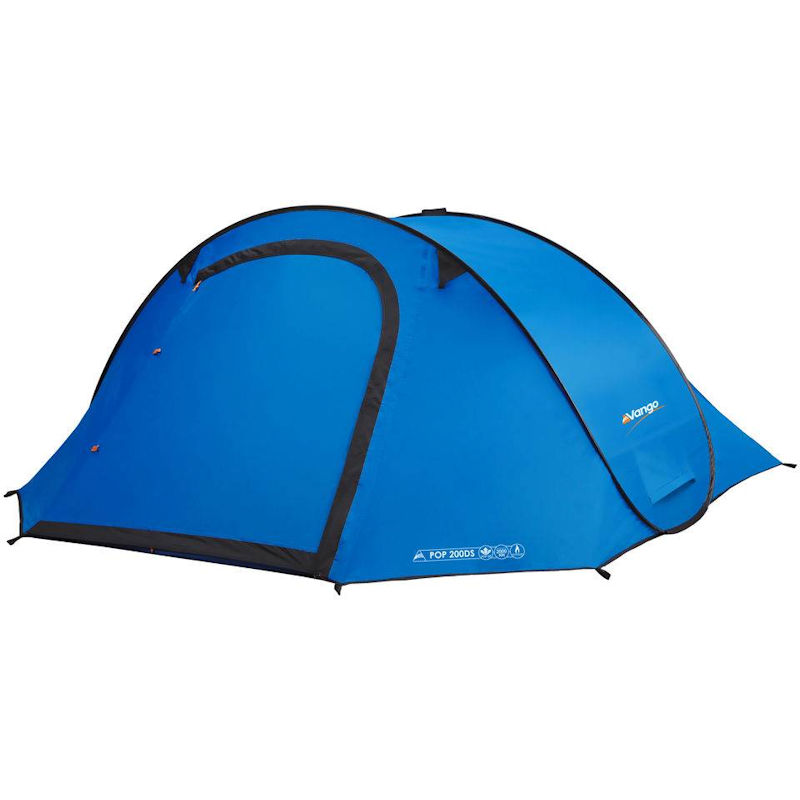
Pop-Up Tents: Instant Setup and Fun
Pop-up tents are perfect for those who want convenience without compromising on fun. These tents require minimal effort to pitch – simply toss them out and secure with pegs. Ideal for backyard adventures and festivals, pop-up tents are a hassle-free choice that ensures quick shelter for kids and adults alike.
Backpacking Tents: Adventure Off the Beaten Path
Backpacking tents are designed for use when mountaineering, on multi-day hikes and wild camping. The most important feature of any backpacking tent is the weight.
If you’re going for a trek and are carrying your tent in your rucksack, then the less weight the tent is the better. To lower the tent weight they are often made for just 1 or 2 people.
Adventure/Festival Tents: Affordable and Practical
When festival season arrives, having a reliable and affordable tent is essential. Opt for a tent with a berth slightly higher than your group size – this provides room for gear storage. Look for built-in porches to keep muddy footwear separate from your sleeping area. Whether camping alone or with friends, a variety of festival tents are available to match your budget.
Weekend Tents: Quick Getaways Made Easy
For spontaneous weekend getaways, weekend tents offer a balance between compactness and comfort. These tents, suitable for couples or small families, set up quickly and often include a larger living space or porch area. If you're seeking a cozy spot to relax after a day of outdoor activities, weekend tents are a fantastic option.
Family Tents: Home Away from Home
As staycations gain popularity, family tents offer a luxurious camping experience. Available in sizes ranging from 3 to 10 berths, these tents provide spacious living areas and multiple bedrooms.
Optional accessories like porches, carpets, and footprints enhance comfort and add extra space. Embrace the comforts of home while surrounded by nature.
Inflatable Tents: Easy Setup and Stability
Inflatable tents introduce cutting-edge technology, replacing traditional poles with inflatable beams. These tents inflate quickly using a pump and boast sturdy beams that eliminate the risk of snapping poles.
Perfect for families and weekend campers, inflatable tents provide a hassle-free setup without compromising on stability.
Inflatable or Poled Tents?
The ongoing debate between inflatable (Air) and poled tents offers campers a choice tailored to their specific preferences and needs. Let's take a closer look at the advantages and disadvantages of both types to help you make an informed decision:
Inflatable Tents Pros:
- Easy Pitching: Inflatable tents are incredibly easy to set up. Instead of traditional poles, you use air beams that can be inflated quickly, reducing the pitching time significantly.
- Time-Saving: With rapid inflation and setup, inflatable tents save you valuable time, allowing you to enjoy your camping experience sooner.
- Wind Resistance: Inflatable tents are designed to handle higher wind speeds without sustaining damage.
- Touring Campers: Campers on the move will appreciate inflatable tents' convenience. They are especially popular among touring campers who frequently set up and take down their tents.
- Size Variety: Inflatable tents come in various sizes, including large options suitable for families or groups, ensuring there's an inflatable tent to fit your needs.
- Solo Setup: Setting up and taking down inflatable tents can often be managed by a single camper.
Inflatable Tents Cons:
- Condensation: One drawback of inflatable tents is that they may experience increased condensation due to limited ventilation. Proper ventilation management is crucial to mitigate this issue.
- Packing Challenges: Folding and packing away an inflatable tent may be trickier than with traditional tents, requiring careful methodology to ensure efficient storage.
- Bulkier: Inflatable tents generally have larger pack sizes compared to their poled counterparts, which can be less convenient for campers with limited storage space.
- Heavier: The air beams and associated components can add weight to the tent, making it less ideal for backpackers or campers who prioritize lightweight gear.
Poled Tents Pros:
- Modular Design: Poled tents offer the advantage of separating the poles from the canvas. This design allows for lower weight when carrying the tent components separately, making it suitable for backpacking.
- Cost-Effective: Poled tents are often less expensive than inflatable tents, making them an attractive option for budget-conscious campers.
- Condensation Control: Poled tents tend to have better ventilation and condensation control, enhancing overall comfort during your camping adventure.
Poled Tents Cons:
- Setup Complexity: Setting up poled tents can be more challenging and time-consuming, especially for campers with limited experience.
- Wind Vulnerability: Poled tents may be more susceptible to damage in high winds, and their setup can be compromised in adverse weather conditions.
- Multiple Campers Required: Erecting poled tents may require the assistance of multiple campers, as it can be physically demanding.
In summary, the choice between inflatable and poled tents ultimately depends on your camping style, preferences, and priorities. If you value rapid setup, wind resistance, and convenience, inflatable tents may be your best bet. However, if you prioritize cost-effectiveness, modular design, and condensation control, poled tents might be the ideal choice.
Exploring Tent Pole Options
Different tent pole materials offer distinct benefits:
- Fibreglass Tent Poles: Lightweight and flexible, but may break under significant pressure.
- Steel Tent Poles: Heavier but provides extra stability, suitable for larger family tents.
- Inflatable Poles: Offer fast, sturdy setup, especially in models like Vango Airbeam and Outdoor Revolution's Oxygen Air Frame.

Fabric Types
Polyester:
- Characteristics: Polyester is a popular choice for tent fabric due to its lightweight nature, durability, and ease of waterproofing. It's available in various deniers, with thicker fabrics generally offering greater longevity.
- Durability: Polyester tents are known for their resilience, making them capable of withstanding various weather conditions.
- Waterproofing: While polyester isn't naturally waterproof, it's treated with a waterproofing agent during manufacturing. Additionally, polyester tents feature taped seams to enhance water resistance.
- Portability: The lightweight nature of polyester makes it an excellent choice for campers who prioritise portability.
- Recommended Use: Polyester tents are suitable for a wide range of camping adventures, from backpacking trips to family camping. They offer a good balance between durability and weight.
Polycotton:
- Characteristics: Polycotton is a blend of polyester and cotton, typically consisting of 35% cotton and 65% polyester. It offers a unique combination of benefits.
- Breathability: Polycotton tents are known for their excellent breathability, making them comfortable in a wide range of temperatures.
- Durability: This fabric is durable and capable of withstanding extended use, making it a preferred choice for those seeking a long-lasting tent.
- Versatility: Polycotton tents excel in different climates, as they provide warmth in cold weather and remain cool in warmer conditions.
- Condensation Control: Polycotton helps reduce condensation inside the tent, especially when using internal beams, enhancing overall comfort.
- Recommended Use: Polycotton tents are ideal for campers who value comfort, durability, and versatility. They are well-suited for family camping and extended trips.
Cotton:
- Characteristics: 100% cotton tents are rare due to their weight and cost, but they offer unparalleled durability and adaptability.
- Durability: Cotton tents are incredibly robust, capable of withstanding harsh weather conditions and extended use.
- Adaptability: These tents are malleable to different weather conditions, making them a preferred choice for permanent pitching or year-round camping.
- Weight: Cotton tents are heavier compared to other fabrics, making them less suitable for backpacking or frequent relocations.
- Recommended Use: Cotton tents are a niche choice for campers seeking the utmost durability and weather resistance, especially in semi-permanent or seasonal camping setups.
In summary, the choice of tent fabric is a critical factor in determining your camping experience. Consider your camping style, weather conditions, and longevity expectations when selecting a fabric type. Whether you prioritize lightweight portability, exceptional durability, or versatile comfort, there's a tent fabric to match your preferences and enhance your camping adventures.
HOW LONG SHOULD MY TENT LAST?
A tent’s lifespan is entirely dependent on how well the tent is looked after. The lifespan can vary massively based on how often it is used, the rigours it is put under and the weather it is used in.
If you are careful when pitching and make sure the tent is clean and dry before putting it away each time you use it, your tent should give you many years of use.

TENT JARGON EXPLAINED
Berth - Used to describe how many people a tent can sleep. Important to note that this is calculated as people without luggage, so remember to include your bag and gear as a berth or person. We usually recommend sizing up by two. So if you’re a couple with camping gear then go for a 4 berth tent and a family of 4 go for a minimum of a 6-berth tent etc.
Hydrostatic head - Hydrostatic Head rating of a tent's waterproofness coating (known as PU). To be classed as legally ‘waterproof’ a tent has to have a hydrostatic head of 1000mm. Tents with 2000-3000mm hydrostatic head should cope with standard British rainfall; the higher the hydrostatic head, the better the water protection you have from your tent. Our tents start at 3000mm and go all the way to 6000mm.
Sewn-in groundsheet - The groundsheet of the tent sewn onto the walls to prevent anything crawling in or out and keeps your tent draught free.
Flysheet - The outer fabric of the tent.
Tunnel tent - Tents with a tunnel design with a number of poles arched, usually taller tents.
Dome tent - Usually smaller tents, a traditional dome tent can be stable in winds due to the poles crossing in the middle of the tent.
Geodesic / Semi-Geodesic - With variations on how the poles cross, the geodesic and semi-geodesic tents are very stable against rough weather. This design is mainly used in backpacking/mountain tents.
Polycotton - Polycotton Tents are tents made from polyester/cotton mix instead of only polyester and feel more like the traditional frame tent canvas. These tents are great in hot climates because the canvas keeps the inside of the tent cooler.
Enhancing Comfort with Tent Accessories
Tents Carpets
A tent carpet adds a bit of luxury to your camping trip. A tent carpet help insulate your family tent from the cold floor and makes it more comfortable underfoot.
Footprint Groundsheets/Groundsheet Protectors
A footprint groundsheet goes down first and then you lay your tent on top. Helps mark out the pitch of your tent, protects and keeps the underside of the tent clean.
Tent Awnings, Canopies & Extensions
Tent porches/extensions can be used to store muddy gear or bikes. Most porches have a gap around the bottom which makes them well ventilated enough to cook in if it’s raining outside.

Selecting the right tent can greatly enhance your camping experience.
Whether you're a beginner, experienced camper, or seeking a tent for a specific type of adventure, understanding your options and the key features of tents will guide you toward a suitable choice.
Remember to consider factors like size, ease of setup, durability, and comfort accessories. With the right tent in tow, you're well on your way to creating unforgettable memories in the great outdoors. Happy camping!
